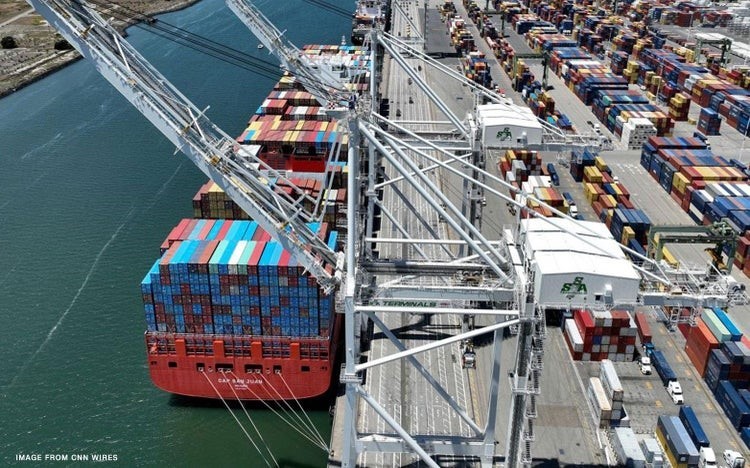Total number of posts 463.
CPTPP is an Asia-Pacific trade bloc comprising 11 member countries: Australia, Brunei Darussalam, Canada, Chile, Japan, Malaysia, Mexico, New Zealand, Peru, Singapore and Vietnam. Other countries (including China) have applied to join the agreement or expressed interest in joining the CPTPP. The UK is the first new member since the bloc was formed in 2018 and the first European member to join the CPTPP.

The UK government argues that membership in the CPTPP will bring many benefits, including lower trade barriers to a dynamic region that is expected to become increasingly important in the global economy. The accession to the CPTPP is also part of the UK Government's previously announced "Indo-Pacific tilt". The UK already has bilateral trade agreements with 9 CPTPP members and only no agreements with Brunei Darussalam and Malaysia.
In 2022, the UK exported £61.3 billion of goods and services to CPTPP countries (7.5% of the UK's total) and imported £52.1 billion (5.8%). The UK government's assessment of the impact of joining the CPTPP suggests a long-term GDP increase of £2 billion (0.06%) but could be higher if other countries, such as South Korea, join the bloc.
The business community is generally supportive of joining the CPTPP. The British Chambers of Commerce said joining would be good news for British businesses to enter or upgrade trade in these markets. The Institute of Directors (IoD) also welcomed the news, describing it as a "win for the UK". However, the ioD warns that economic benefits may be limited and that trade agreements generally do not change the situation.
TechUK, the Digital Technology Trade Association, noted the CPTPP's provisions on digital services and trade, saying the benefits of the CPTPP would be "strategic rather than material" and that membership of the CPTPP had put the UK "in the club of middle power states that have traditionally crossed the boundaries of those who have traditionally crossed the boundaries of those who have crossed the boundaries of those what's possible in digital trade policy."
The NFU said joining the CPTPP could provide some good opportunities to export British goods, particularly dairy exports to the Americas, poultry to Vietnam and lamb to Malaysia. It said the outcome of joining the CPTPP was "much more deliberate and balanced" than the UK's bilateral agreements with Australia and New Zealand.
Many organizations have expressed concern about the impact of the CPTPP on food, farming and environmental safety standards. The NFU and WWF note that the UK has not developed core minimum standards for food imports. The UK government has stressed that food imports will continue to comply with UK import standards. In particular, concerns have been raised about palm oil. Tariffs on palm oil will be reduced from 12% to 0%, potentially leading to more imports.
Environmental groups claim that palm oil production is linked to deforestation and harm orangutan habitat. The government said the UK and Malaysia have published a joint statement on sustainable agricultural commodity trade and cooperation for forest conservation (PDF). The Government's Impact Assessment estimates a slight increase in greenhouse gas emissions as a result of the agreement. Concerns have also been raised over pesticides and animal welfare.
Some groups have raised concerns about the Investor-State Dispute Settlement (ISDS) provisions. These are controversial with some arguing that they allow foreign investors to challenge legitimate government policies in areas such as the environment, workers' rights and health. The government has said the right to regulate in the public interest will be preserved.
The deal will be submitted to the UK Parliament under the Governance and Constitutional Reform Act 2010. This won't happen before mid-October at the earliest to allow time for selected committees to scrutinize the deal. The House of Representatives' Committee on International Agreements has announced a review of the CPTPP.
Although no debate or vote is guaranteed, the UK Government has said it will seek to secure a debate if requested by a select committee. The Committee on Trade and Agriculture will also advise the Government on whether the provisions of the CPTPP for trade in agricultural products are consistent with maintaining the UK's statutory level of protection relating to the life or health of animals or plants, animal welfare and environmental protection or not.
The Government is also seeking advice from the Scottish Food and Food Standards Agency on whether the agreement is consistent with maintaining statutory protections relating to human health. Both sets of tips will be provided by Nov. 30, 11.
Internalization will be required before a deal can be made. Basic laws will be needed in three areas: Technical Barriers to Trade, Government Procurement, and Intellectual Property. Changes to secondary laws and Immigration Rules will also be needed. The UK government expects the agreement to enter into force in the second half of 2024 after the UK and other CPTPP members complete the necessary legal processes.














